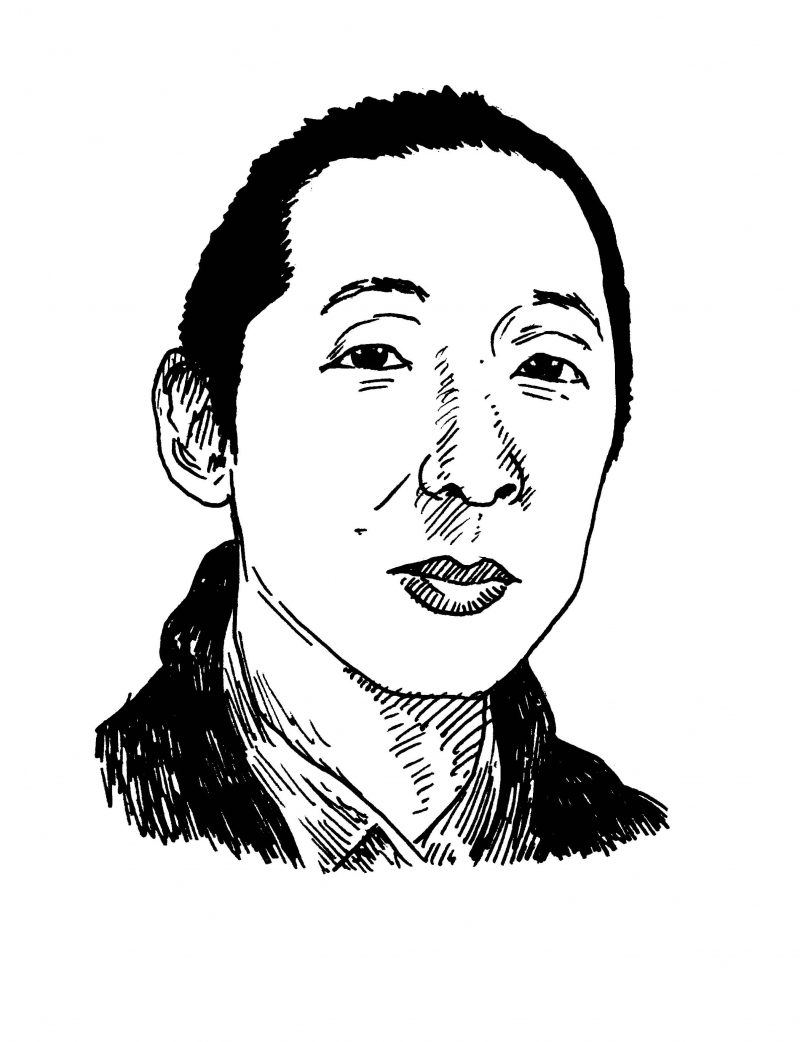People try to imitate success, not realizing that originality is often the soul of what makes something successful. To be an acolyte to an artist risks committing such a sin. And Kogonada is an acolyte of many: Ozu, Hitchcock, Godard, Malick, and Koreeda.
And yet Kogonada is entirely his own creation, not mimicking these precursors but responding to them. Famous first for his Criterion Collection “video essays” (a label he prefers over “supercuts”), then reborn as a feature filmmaker, Kogonada is a long-awaited voice for art-house cinema. His essays are visually seductive interpretations of the world’s greatest filmmakers’ films. They go viral. Maybe you’ve seen one. There’s the piece in which he pays tribute to Robert Bresson’s fascination with hand gestures. And there’s another in which he identifies “one-point perspective” in the work of Stanley Kubrick; about this video he has written: “Somewhere in this piece is an untenable theory about how this perspective is more than an aesthetic choice for Kubrick but a gateway to the meaning of life.”
These essays got attention from producers, who helped finance his first feature film, Columbus, which premiered at Sundance in 2017, found quiet success at the box office, and then showed up in award nominations and on top-ten lists. The conversation-led film, starring John Cho and Haley Lu Richardson, is about architecture and what people owe one another, beautifully captured in the puzzling modernist mecca of Columbus, Indiana.
Kogonada is a private person (“Kogonada” is a pseudonym borrowed from Yasujirō Ozu’s screenwriting partner). Profiles uniformly focus on him being a Korean-born American based in Nashville, who dropped out of a PhD program where he was writing a dissertation on Ozu. I first met Kogonada after Columbus’s Sundance premier. I met him again, three seasons later, in a West Village coffee shop. Kogonada spared me a full Saturday morning, and the most gracious attention.
—Noah Pisner
I. “THAT’S THE KIND OF CINEMA I’M LOOKING FOR—THE KIND THAT LETS YOU CHEAT ON LIFE.”
THE BELIEVER: If you could recommend a film to your younger self—a film you hadn’t seen at that age but that you’ve seen now—what film would you choose? And for what age?
KOGONADA: I wish I’d seen The 400 Blows earlier. For any serious film-watcher, there’s that first film you come across—something foreign or art-house—that has its own rules and tastes, and either you’re just revolted by it, you’re bored, or something about the difference captures you and you rethink film entirely. The 400 Blows did that for many, and maybe I wish I had seen it earlier. Like most teenagers, I experienced so much conflict, so much distraction, and what...
You have reached your article limit
Sign up for a digital subscription and continue reading all new issues, plus our entire archives, for just $1.50/month.
Already a subscriber? Sign in





